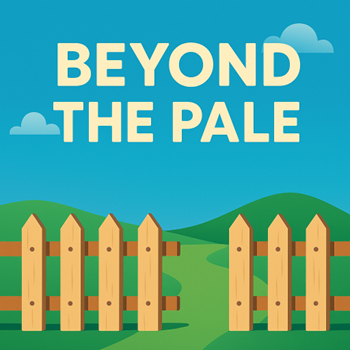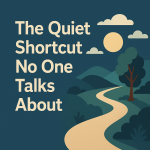We use it all the time.
“That remark was beyond the pale.”
But what is a “pale”? And why is going beyond it so frowned upon?
I first heard the phrase as a boy from Llanbradach when my Aunty Mary, after a heated neighbourly dispute, declared, “Well, that’s just beyond the pale, isn’t it?”
I pictured something murky, disreputable, possibly involving livestock and gossip. But as I later discovered, the roots go deeper—and the story more colourful.
So What Is a Pale?
The word “pale” comes from the Latin palum, meaning a stake—like the sort used to build fences. Over time, a “pale” came to mean a boundary or enclosed area, often under the rule or protection of an authority.
To go “beyond the pale” meant stepping outside that boundary—into lawlessness, danger, or simply into a place where polite society frowned upon venturing.
History’s Most Famous Pale
Ireland gives us the most vivid version.
After the Norman invasion of Ireland in the 12th century, the English crown established a fortified area of control around Dublin, known as The Pale. Within it: English law, customs, language. Beyond it: the Gaelic Irish, their own laws, and their own way of life.
Crossing out of the Pale wasn’t just a geographical move—it was a cultural and political one. To the English, life beyond the Pale was unruly, risky, uncivilised. To the Irish, it was home.
As one Irish historian put it, “Beyond the Pale lay freedom… depending on which side of the fence you were born.”
Other Pale Places
Ireland’s Pale may be the most storied, but it wasn’t alone.
Russia, in the 18th and 19th centuries, had its own “Pale of Settlement,” a boundary within which Jewish people were confined by the Tsars. To live outside it required special permission. Once again, the Pale wasn’t just about borders—it defined who belonged, and who didn’t.
What It Means Today
Over time, the phrase lost its geopolitical weight and became shorthand for anything unacceptable, offensive, or outside the bounds of what’s socially or morally tolerable.
Say something wildly inappropriate at a dinner party? That’s beyond the pale.
Try to sneak off the golf course without buying a round after winning the monthly medal? Definitely beyond the pale.
Fences, Freedom and Funny Old Sayings
It’s fascinating how language carries history in its pockets.
A phrase you might use to describe a dodgy business offer or a poorly thought-out tweet actually traces back to wooden stakes in medieval Ireland.
It reminds us how much of what we say is steeped in centuries of power, politics, and perception. And how a few well-chosen words can still fence us in—or help us step beyond.
Coming Friday:
We’re back to business—revealing how to build consistent income online without the constant hustle. A free eBook and a system that I use every week. Don’t miss it. Before that, why not take a look at the posts in my blog.



